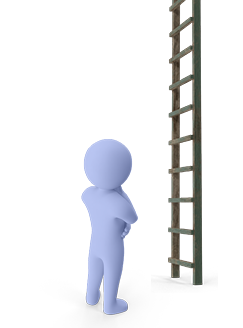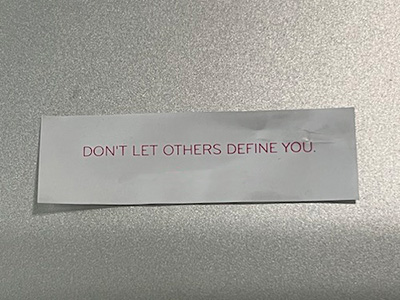What is ENOUGH in a society built on the worship of MORE?
Last week, CNBC expressed deep concern that women are leaving their senior leadership positions.
Meta. YouTube. New Zealand. Scotland. Powerful women are quitting, and the trend definitely highlights systemic problems in business and society.
The CNBC article notes that this trend “has the potential to unwind decades of progress toward gender equity and increased female leadership in the workplace.”
But I ask, what progress?
The problem is not that these powerful women are choosing to leave their powerful roles. The problem is that men aren’t.
Systemic inequities continue to reign
When we measure the number of women compared to the number of men in positions of leadership, there has been some progress toward equity, but a huge gap remains.
The CNBC article points out that the pace of women moving into director-level leadership is regressive: “For every woman stepping into a director-level leadership role, two are choosing to leave.”
Statistically, women still carry far more burdens than men do. While it’s possible that some individual companies may provide environments of practical equality, the truth is that on a societal, statistical level, women continue to shoulder a lot of hidden burdens that men do not.
For example, a pre-pandemic Forbes article notes that having aging parents significantly affects the ability of women over 50 to keep working. Women, far more then men, tend to leave the workforce to become a caregiver, and never return to their previous work status. The pandemic has made the gender gap wider.
The inequities in society and in business that make it harder for women to advance to positions of power are many, and they’re deeply embedded in most of America’s business and societal systems.
Those inequities and the causes of them are beyond the scope of this article. Entire careers have been built on tiny fractions of this subject area, and I won’t solve it in a blog post.
I just want to point out that inequity is real, and the path to true equality is not to force women to act like men have in the past, but instead to rethink and redesign all our systems.
In my opinion, one of the most ingrained, insidious, and difficult to overcome is our obsession with MORE.

Kids always end up playing with the boxes
as much as the toys, don’t they?
Our achievement-oriented, capitalist society demands MORE
Rather than engaging in hand-wringing about women leaving positions of power, we should be asking why more men aren’t.
How high does a person have to climb in order to feel okay calling it quits? How much wealth does a person need in order to feel comfortable leaving the workforce?
In our achievement-oriented society, the answers are always HIGHER and MORE.
Capitalism has this weird obsession with MORE. If you aren’t pursuing MORE then there must be something dreadfully wrong with you.
It’s why an executive’s departure can dominate a news cycle. It’s why we are stunned when an elected official doesn’t seek reelection. It’s why someone giving away their company is a total shock.
Every race has a finish line. Every game has an end point.
But not capitalism. Capitalism is a game where the reward for stepping up one rung on the ladder is to be able to see the next rung, just within reach.

The pressure we put on successful women to be the poster kids for MORE is weird and backwards.
Women who reach positions of power don’t owe society the remainder of their lives. They don’t have to keep climbing just because the rest of us want to pretend we’re moving toward gender equality.
We should instead be celebrating when successful people—both women and men—decide they’ve gotten as far as they want to go, and opt out.
Certainly a lot of people make that decision every day. The pandemic has helped many people see value in life beyond the accumulation of wealth and power. Generational attitudes may even be shifting on this.
But the reality is that everything we’re taught, and everything we’re fed every day through advertising, popular culture, and the news, tells us that it’s not okay to stop climbing.
But I say it is okay to stop climbing when you’ve finally landed on the rung that feels high enough for you.
How do you know when enough is ENOUGH?
This is one of the most personal questions a person can face, yet it’s also one of the most scrutinized by family, friends, and even the public.
As with most major life decisions, the key is to be keenly aware of your internal motivators, the external forces influencing you, and the potential consequences of the choices before you.
When society has elevated an ideal like MORE to the point that it becomes largely an unassailable truth, choosing ENOUGH can seem like heresy. It can put you on the wrong side of the line between normal and weird. It can cause people to worry openly that maybe something else is forcing your hand.
It can be especially hard to think clearly in the middle of such judgment and noise.
All the other voices can make you focus on the wrong things, or make you fearful when you don’t need to be. So it becomes critical to find a way that works for you to separate the external pressures from your internal motivators and values, and then explore what ENOUGH might mean for you.
It’s not an easy question. It involves a lot of dimensions, and it requires you to anticipate a lot of unknowns.
Financial security, personal health, dedication to family, commitment to community or faith, ability to do things you love, acceptance from others, inclusion in social groups, the legacy you want to leave… these things and more are all factors you need to consider.
Also, the consequences on yourself and others of the choices you make—as I told my kids when they were growing up, you have freedom of choice but not freedom from consequence. When do you want to ignore the external influences, and when do you need to honor them?
In the cacophony of MORE we’re bombarded with every day, and the judgmental opinions of others, figuring out what ENOUGH means to you can be a profoundly difficult task.
Which is why I think we should celebrate, not be fearful, when someone quits a powerful role.
To me, it means they’ve learned how to be true to themselves in a world that demands we sacrifice ourselves to the perpetual pursuit of MORE.

Let’s talk
If you want to talk about how to figure out where your ENOUGH is, or if you are facing any big life or career decisions, I can help. Drop me a line, and we’ll set up some time to talk.



0 Comments